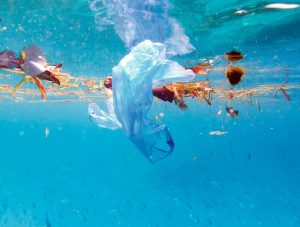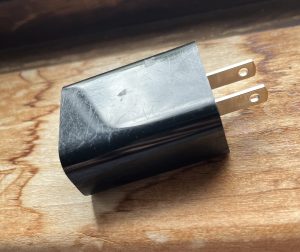I’ve got quite a collection of boxes strewn around my home, despite moving in months ago. While it might seem like I’m stockpiling them to create a mammoth cat shelter, that’s not the case – at least not currently. The reason for these lingering boxes is mainly attributed to my struggle with depression, which has had a significant impact on my productivity. Cleaning them up has been a challenge because I’ve lacked the motivation to do so, and I also haven’t established a regular cleaning routine. So, it’s not about hoarding; it’s more about a combination of low energy levels and a lack of consistent cleaning habits that’s led to this situation. These boxes serve as a tangible reminder of my ongoing mental health battle, an issue that often makes even everyday tasks feel overwhelming. While they may clutter my living space, they’re a symbol of the broader challenges I’m working to overcome. In essence, my collection of boxes represents not a deliberate choice but a poignant reflection of the complex relationship between mental health, productivity, and daily routines.
Category Archives: Uncategorized
Matter out of place
Living with diabetes, I constantly rely on a substantial number of syringes and insulin pump quicksets. These crucial medical tools are often discarded as waste due to their contamination. Mary Douglas’s concept of dirt provides an insightful perspective on why these items are categorized as waste. She proposes that dirt is more than just physical impurity; it symbolizes something that deviates from established societal norms. In the case of these medical supplies, they are deemed impure due to their close association with bodily fluids and medical procedures. They come into direct contact with open wounds and are used to penetrate the skin, raising legitimate concerns about infection risks. From a public health perspective, it becomes evident why these items are labeled as “dirty.” They disrupt the pursuit of cleanliness and health within our environment, underscoring the need for their proper disposal to safeguard public health. From an environmental standpoint, these disposable items also contribute to resource wastage and environmental pollution, further justifying their categorization as waste. The entire lifecycle of these items, from production to disposal, involves substantial environmental impacts. This broader perspective emphasizes the environmental consequences of labeling these items as waste, extending beyond their role in disease prevention. In conclusion, Mary Douglas’s concept of dirt provides a comprehensive framework for understanding why these vital medical supplies are considered waste. It underscores how societal norms, public health considerations, and environmental consequences all contribute to the perception of these items as waste in our daily lives
Lost Clothes
In the Dakin laundry room there is a large bin where donated clothes can go. It’s no a “waste bin” but if you would like to get rid of clothes you don’t want, that’s the place to put them. Also if you leave your laundry on the floor or couch for numerous of days, it may end up in there as well. By having that bin, it stops people from throwing their clothes in the dumpster. Although it may not serve a purpose to them, someone else can take it. by avoiding throwing clothes away, we can donate or give it away so we can either reuse the fabric or pass down a piece of clothing. Some idiots like to throw trash and lint in there. Being oblivious that there’s a photo of a clothing item, they still find a way to put things that don’t belong. People’s waste getting mixed with clothes would make the staff probably want to throw the clothes away. Nobody want to pick trash out of clothes.
Marine Life isn’t a Waste Site
The physical structure around waste infrastructure is the ocean in general because 1) it’s not considered a wasteland, and 2) people throw waste into the ocean putting wildlife in danger. Penguins getting caught by a soda can plastic thing that wraps around their necks or broken fishing nets getting caught by turtles and other creatures in the environment. The coral is dying due to climate change and other causes.

Paperless
As we chop down thousands of trees to use paper, we don’t realize how much it gets wasted. We tend to lose paper, crumble it, or throw it away after it is written or drawn on.Individually I feel like it would be best if we recycle it. If we have bins for paper we can get rid of all our loose pages that are wandering in our backpacks, brief cases, desks and more. Paper can be reused to create another peice of paper. There’s a process that it undergoes so it won’t end in a land fill. It becomes someone else’s responsibility when it gets thrown away. Whether it’s trashed or recycled, we have no opinion or say on where it will move next. Once it’s discarded, it’s no longer our issues. We should save the trees and allow them to produce cleaner oxygen that we breathe. Lets go paperless!
Reclaiming Waste
From my trash, I have taken out an old iphone charger block. It stopped working two months ago but I didn’t have the nerve to throw it away. It threw it out because in my life it was no longer useful. What I should have done with it is recycled it in an electronics recycling center. To me, I will decide something is trash when something is broken enough to not be used again and I can’t find any other useful perpetual value in it.
The environmental problems that face our world are our own faults. We have created a social environmental foundation that is insane in my mind. We have taken so many resources from this planet and in return have made it less inhabitable to animals. We have made living in cities the majority of where people live because of the accessibility. People really like quick and easy access to anything and everything. The individual impact that we have on the work is small but when multiplied by how many humans live on this earth we then create the problem. The large institutions that make so much waste on a day to day practice get shielded by legislation and political parties that want to stay in power and make money. People love to control and have control over people. It is a fundamental fact about humans. We like power! Such a shame, when the effects of our mistakes are being taken out on the planet we call home.
